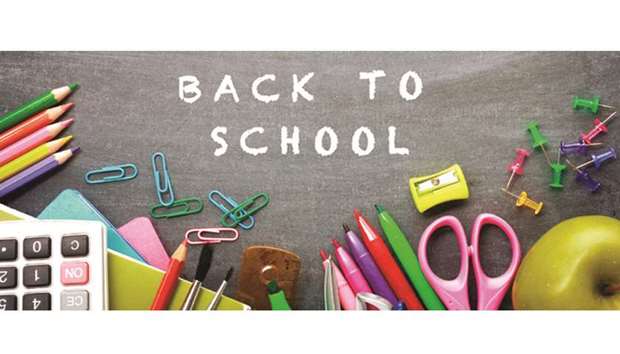The Ministry of Economy and Commerce (MEC) has issued some suggestions to families at the start of the back-to-school shopping season.
The MEC noted that pre-planning and saving are considered one of the most crucial shopping skills that help families avoid extra financial burdens, particularly as this year’s season came after Ramadan and Eid holidays, which also see increased spending by families.
The MEC guidelines aim to help family members buy smart by planning appropriately in order to avoid unnecessary spending. The Ministry stressed that investing in education guarantees a bright future.
It said that the first step parents must do is to choose the appropriate educational institution for their children, and to plan saving for the school fees in advance. One way to do that, according to the MEC, is by establishing a school fund at the beginning of the year, where all members of the family save a portion of their income for the school fees.
The Ministry noted that a family’s spending on education can be divided into two types. The first are fixed fees that will be paid at a particular time each year. An example of that would be school tuition.
The second type is variable costs paid throughout the year. An example of that would be the cost of buying stationery. The ministry advised that families plan how much would they spend annually on each category.
To buy school needs in the best economic way, the MEC advises parents to prepare a list of their needs, select the best places to buy at the best offers, trying to buy in wholesale things such as pens and notebooks, and let children share tools among them, in addition to teaching children the culture of saving to buy only the necessary things.
Besides, school needs should be purchased as early as possible to avoid any hike in prices on account of last-minute shopping.
It is very important to involve children themselves in the process of selecting the things that suit them best.
Studies indicate that the percentage of school needs spending in the Arab region is considerably high amounting to 25% of the monthly income of Arab families, which means spending of around QR2,500, while globally, it is around 4% of a family’s monthly income and 4.5% for clothes.
The rates are calculated on the basis of QR10,000 a month per family.

